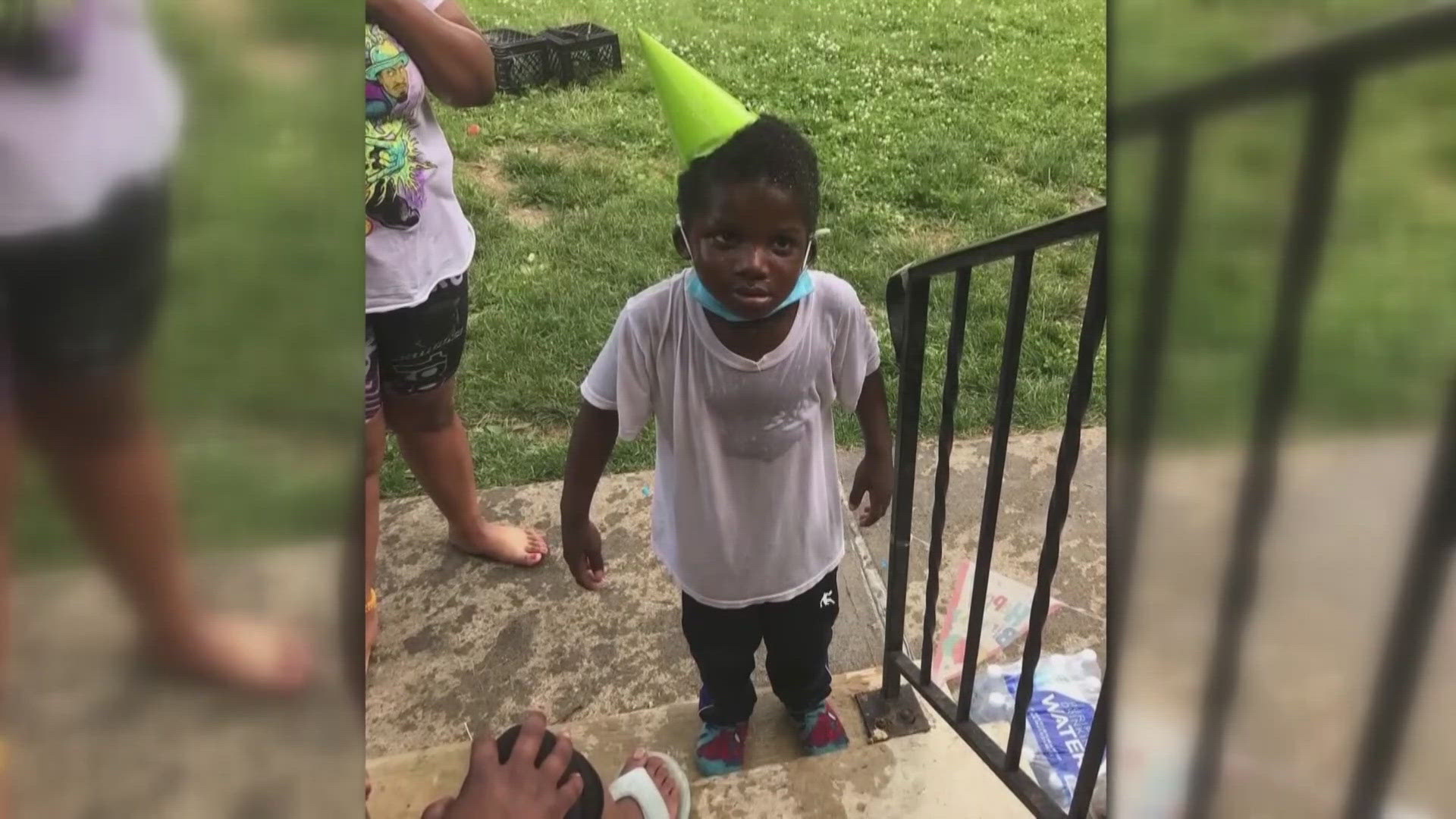FRANKLIN COUNTY, Ohio — Any time a child dies, it's a tragedy. It's even harder when the death of that child was preventable.
Martonio Wilder was just 8 years old when he died – a preventable tragedy that police say happened at the hands of the people who were supposed to love and take care of him. His mother, LaShanda Wilder, reported Martonio missing on June 28. She told police that she believed Martonio ran away. In reality, officers found his body in the attic of his mother's home. She and her girlfriend, Johnna Lowe, were charged in his death.
Martonio's death came as a shock to the community. It was less shocking to his extended family who say they reported their concerns about abuse and neglect to Columbus police and Franklin County Children Services.
10TV investigated and found out that it's true that Martonio did have contact with both agencies. He first came onto FCCS' radar on the day he was born when he tested positive for drugs.
"Martonio’s death has had an impact on so many people in our agency, probably just about everyone in our agency throughout his life off and on. There were a number of different staff, case workers who were in touch with Martonio or with the family," Scott Varner told 10TV reporter Tara Jabour on Monday.
Varner is the director of communications for FCCS, and he's fielded many phone calls from 10TV reporters searching for answers in Martonio's death. He says state and privacy laws prevent FCCS from answering case-specific questions; however, the agency did agree to a sit-down interview with 10TV on Monday to talk about how they handle complex and sensitive cases.
Martonio's extended family told 10TV they reported their concerns about neglect and abuse to police and FCCS. We asked Family Services Director Emily Green what she thinks when she hears families blame FCCS in tragic cases. She said the agency looks to work with other community partners to prevent abuse and neglect.
"When a child dies, we have, we can do better as a community, right? That shouldn't happen," she said. "How can we work together and maybe do more in the prevention space to make sure tragedies like this don't happen in our community?"
Martonio's extended family also blames FCCS for allowing the little boy and his siblings to remain in this mother's home. Green said FCCS doesn't have unilateral authority to remove a child from their home - even if it's unsafe. She said case managers spend time talking to a child's family, friends and educators to determine what's happening in the home. They also look for physical warning signs of danger, like bruises. If a caseworker believes a child is in a dangerous situation, they work with law enforcement and the courts to get them to a safe place.
"The law gives law enforcement and the court system the ability to remove a child, and when that happens we support that through foster care, kinship care and make a plan to make sure that child is safe," Green said.
Martonio wasn't an only child. He also has two brothers, who Varner confirmed are still in FCCS' care. He said keeping the boys physically safe is a top priority, but the agency is starting to consider how they can also meet their mental health needs.
"Recognizing the immense trauma they are facing and probably will continue to face for years to come," he said.
Varner also said that Martonio's death has left some FCCS staff angry. He said that many FCCS staff members were involved in Martonio's casework and that the family was offered many community resources.
"There is a little bit of anger amongst our team. Angry in thinking about all of those resources and support that were provided. What happened within that house that a parent thought injuring a child was the only option? Angry at the sense that in our community there are so many community resources and supports available," Varner said. "Angry at the sense that there were a number of people that were in this little boy's life that probably saw something, had questions about something, many doubts, but didn't speak out or didn't know how to speak out," he continued.
If you think a child is being abused or neglected, call the 24-hour child abuse hotline at 614-229-7000.
This interview is a piece of a 1-hour long interview with Franklin County Children Services. 10TV will have more stories with this information within the next week.

